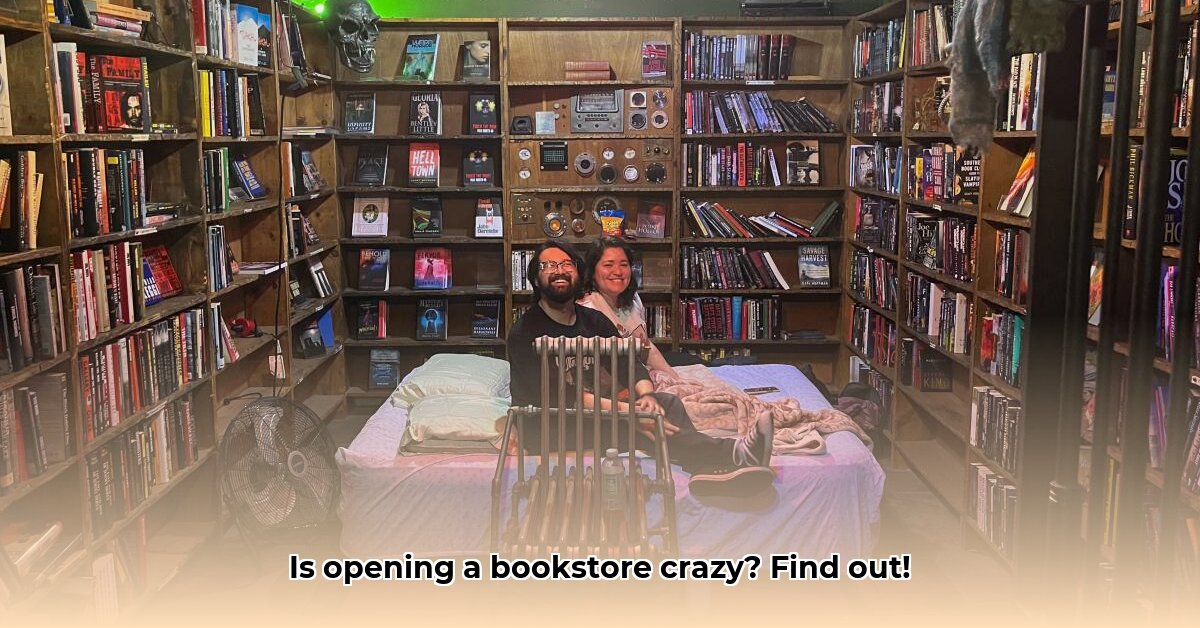
Thinking of opening a bookstore? It's a dream many share, but the reality can be daunting. Is it a crazy idea in today's digital age? This guide will help you determine if opening a bookstore is right for you, by systematically addressing common concerns and providing practical solutions. We'll explore the challenges, potential pitfalls, and, most importantly, strategies for success. This isn't just a daydream; it's a roadmap to making an informed decision.
Is This Really Your Calling? A Self-Assessment
Before diving into the complexities of bookstore ownership, honest self-reflection is crucial. Are you truly passionate about books – reading, discussing, and sharing them? Are you prepared for the long hours and potential financial challenges inherent in running a small business? Do you enjoy customer interaction and creating a welcoming atmosphere? A realistic self-assessment is your first step toward success (or gracefully accepting that this venture may not be for you).
The Reality Check: Challenges and Rewards
Let's be upfront: running a bookstore is demanding. It requires long hours, dedication, and an entrepreneurial spirit. You'll juggle inventory, marketing, customer service, and more. You'll face competition from online giants like Amazon. This isn't a stroll in the park; it's a marathon. But the potential rewards are significant. Imagine building a thriving community, fostering a love of reading, and achieving financial independence while doing what you're passionate about.
Turning "Crazy" into "Clever": A Practical Game Plan
Now, let's transform the initial "crazy" notion into a calculated, viable business venture. By strategically planning and addressing potential risks, you can substantially increase your chances of success.
Develop a Robust Business Plan: This isn't a casual outline; it's a detailed financial projection. Include realistic numbers – not wishful thinking – based on thorough market analysis. Project your goals for the first, third, and fifth years of your business. This plan will be your roadmap for success.
Define Your Target Audience: Who are your ideal customers? Are you focused on young adults, seasoned readers, or a diverse audience? What genres are most popular locally? What unique aspects will differentiate your bookstore from competitors? Conduct thorough market research, including competitor analysis and local demographic studies, to inform your choices.
Embrace the Omnichannel Strategy: Don't limit yourself to in-person sales. Integrate online and offline channels seamlessly. Utilize social media, create an e-commerce platform, and consider hosting virtual events to expand your reach and diversify income streams.
Build a Thriving Community: Your bookstore is more than a place to buy books – it's a social hub. Host author readings, book clubs, workshops, or other engaging events. This fosters customer loyalty, generates positive word-of-mouth marketing, and creates a vibrant atmosphere that draws customers back time and again.
Master Inventory Management: Track sales diligently. Use data to determine which books sell well and which are underperforming. Utilize inventory management software or a reliable system to minimize waste and maximize profits. Efficiency is key.
The Financial Landscape: Projections and Planning
While specific financial projections will vary significantly based on various factors, it's crucial to develop a well-informed financial model. A simplified example:
| Year | Revenue Projections | Expenses | Profit/Loss |
|---|---|---|---|
| Year 1 | $50,000 | $60,000 | -$10,000 |
| Year 2 | $75,000 | $65,000 | $10,000 |
| Year 3 | $100,000 | $70,000 | $30,000 |
This illustrative example highlights the potential for growth, the importance of financial planning, and the necessity of understanding expenses and aiming for efficiency. Remember, this is just a sample – your actual figures will require detailed research and planning.
The Verdict: Calculated Risk, Not Reckless Abandon
Is opening a bookstore crazy? Not necessarily. It’s a calculated risk. By acknowledging the challenges, developing a realistic business plan, and embracing community building, you can significantly improve your chances of success. It's about creating more than a business; it's about building a space where people connect through their shared love of reading. And that's far from crazy; it's visionary.